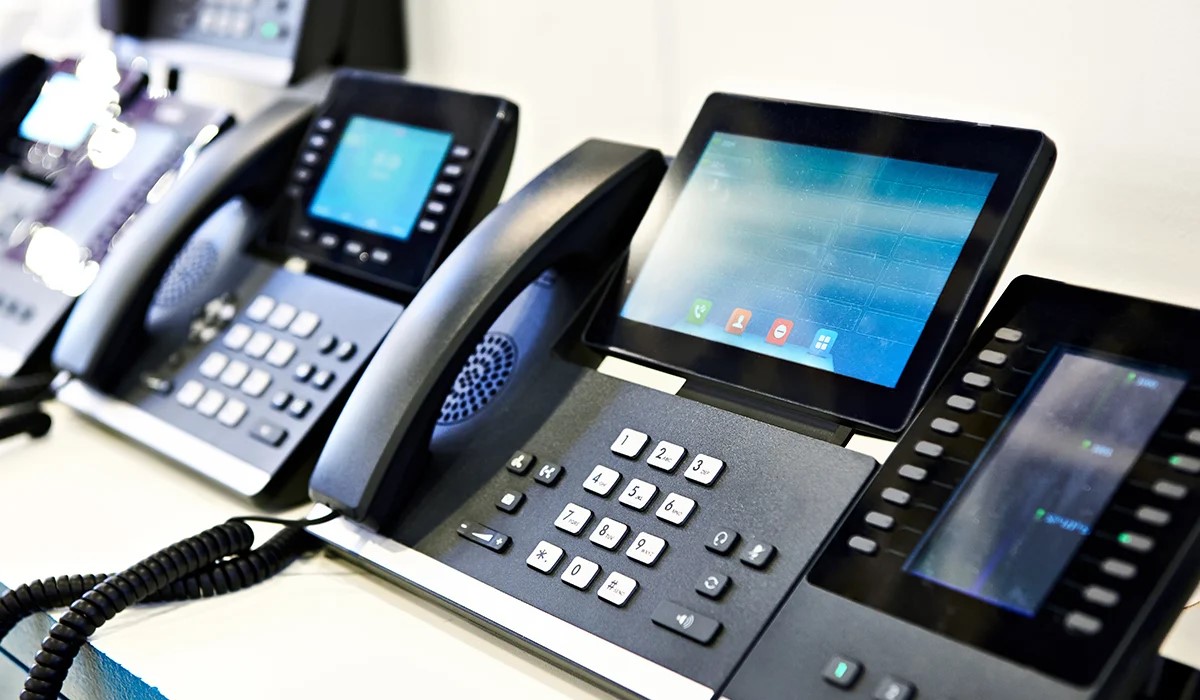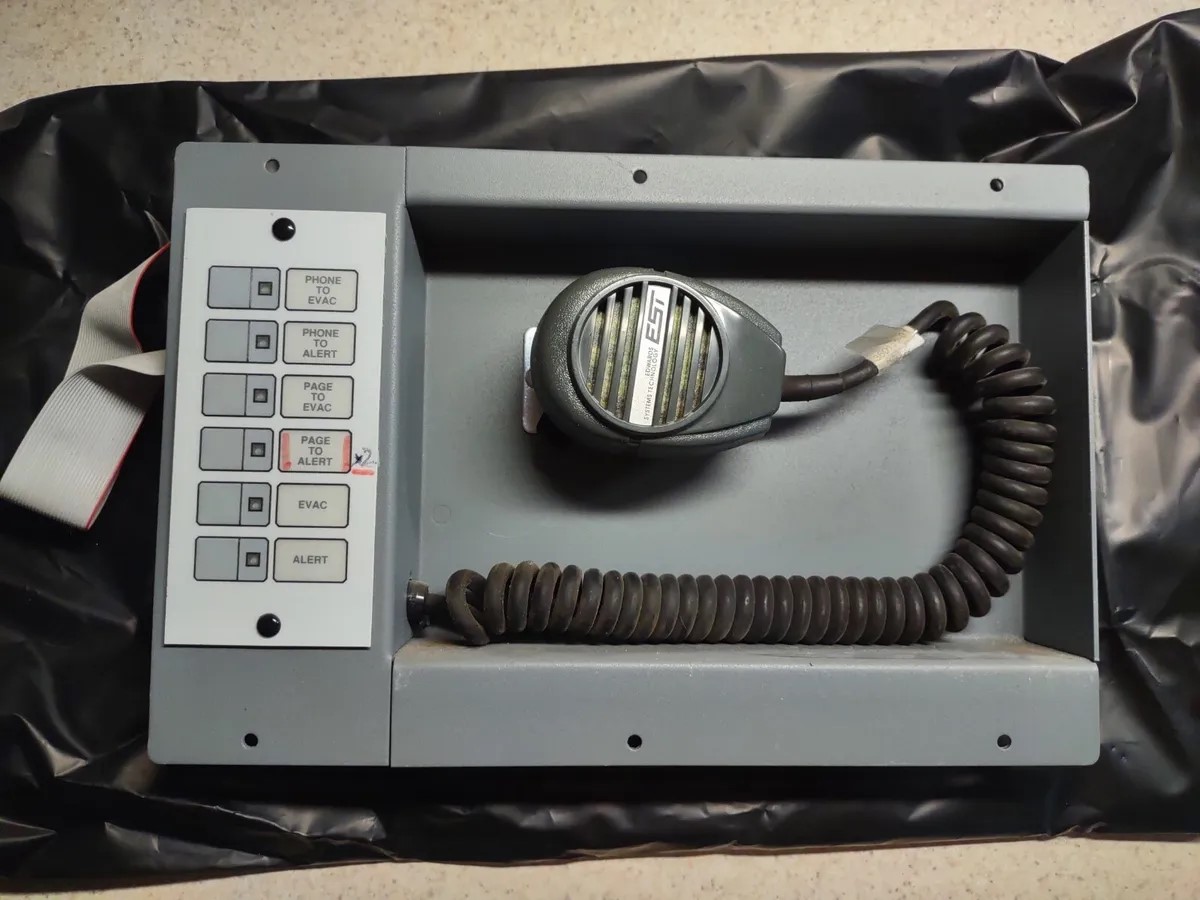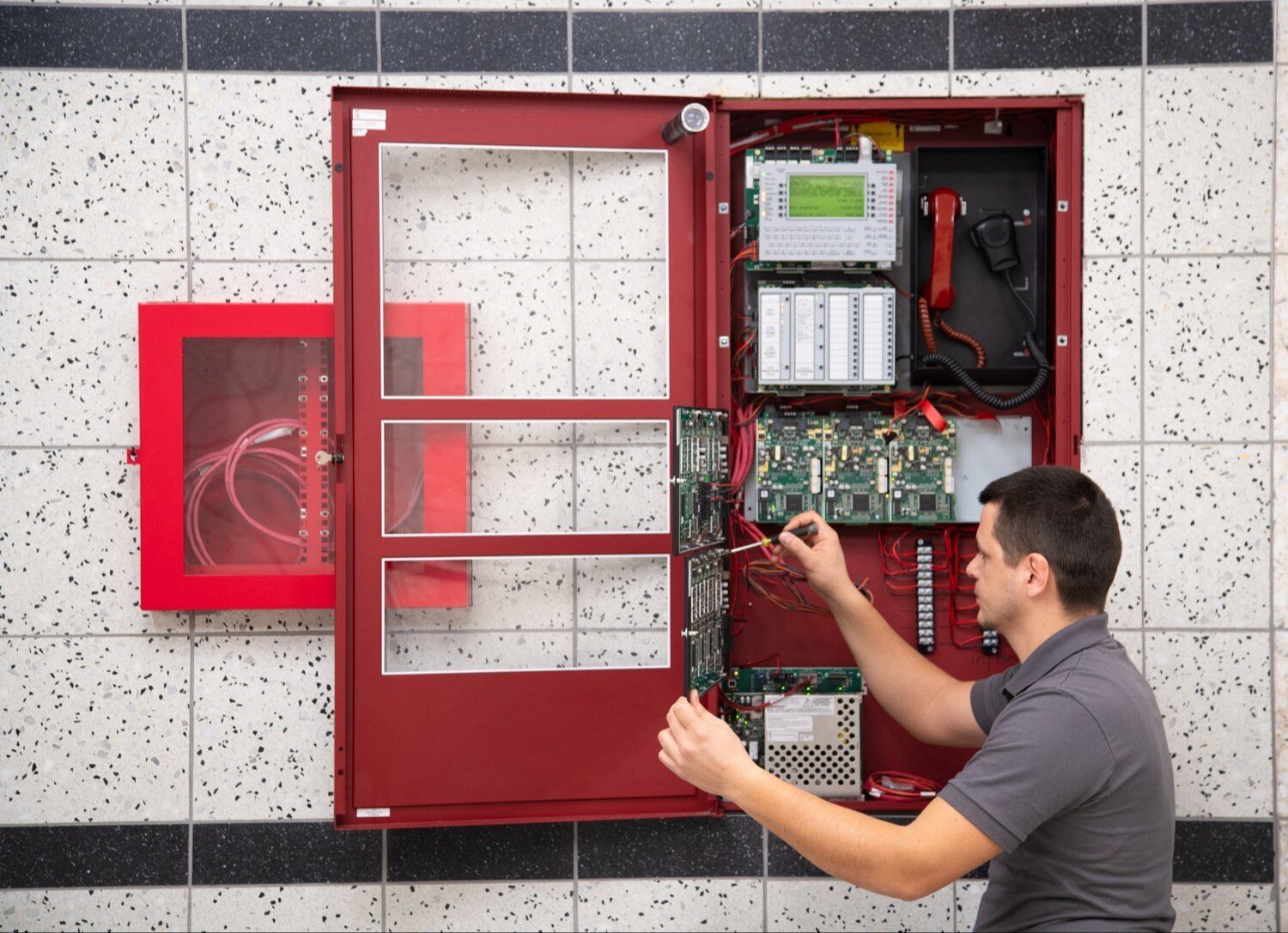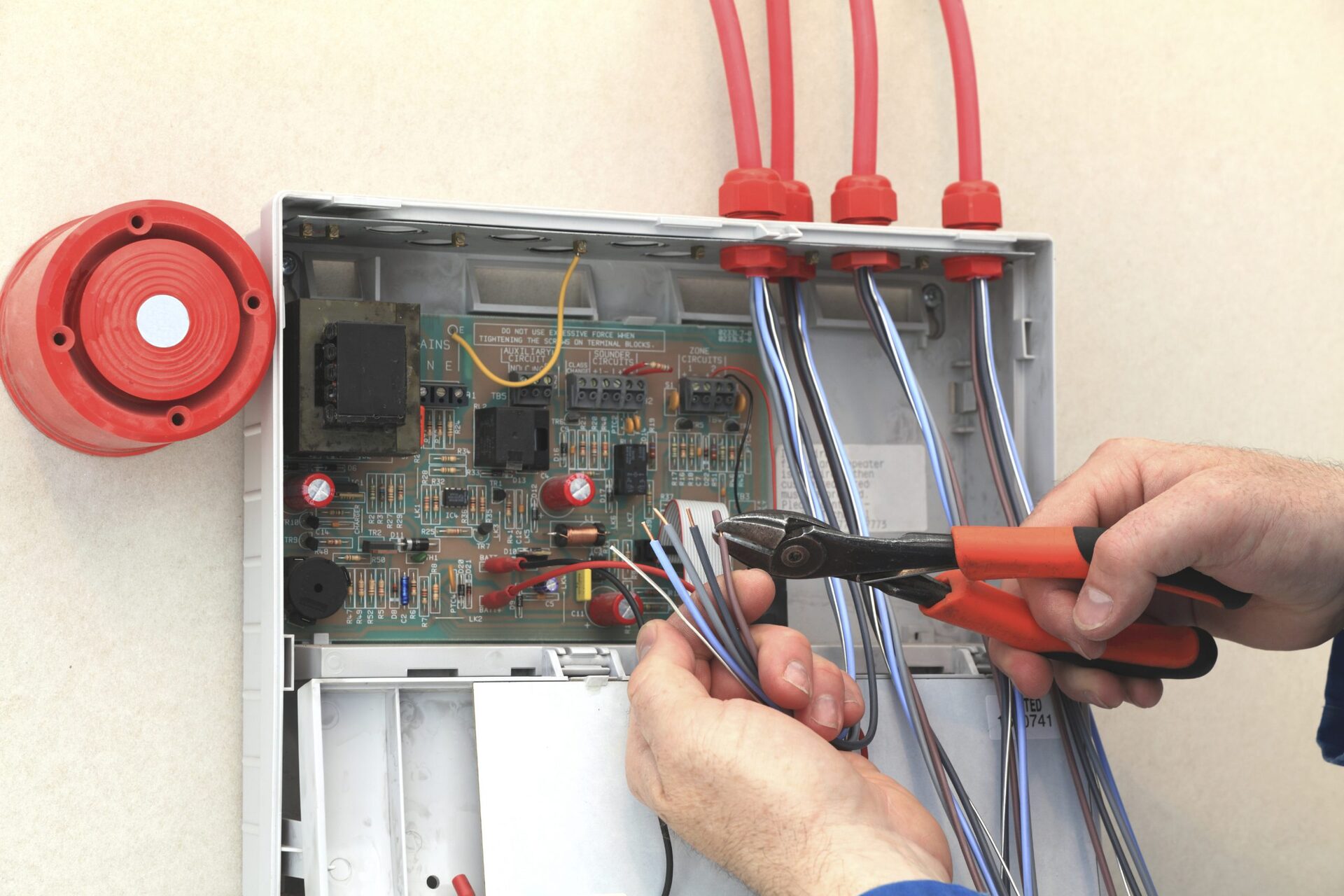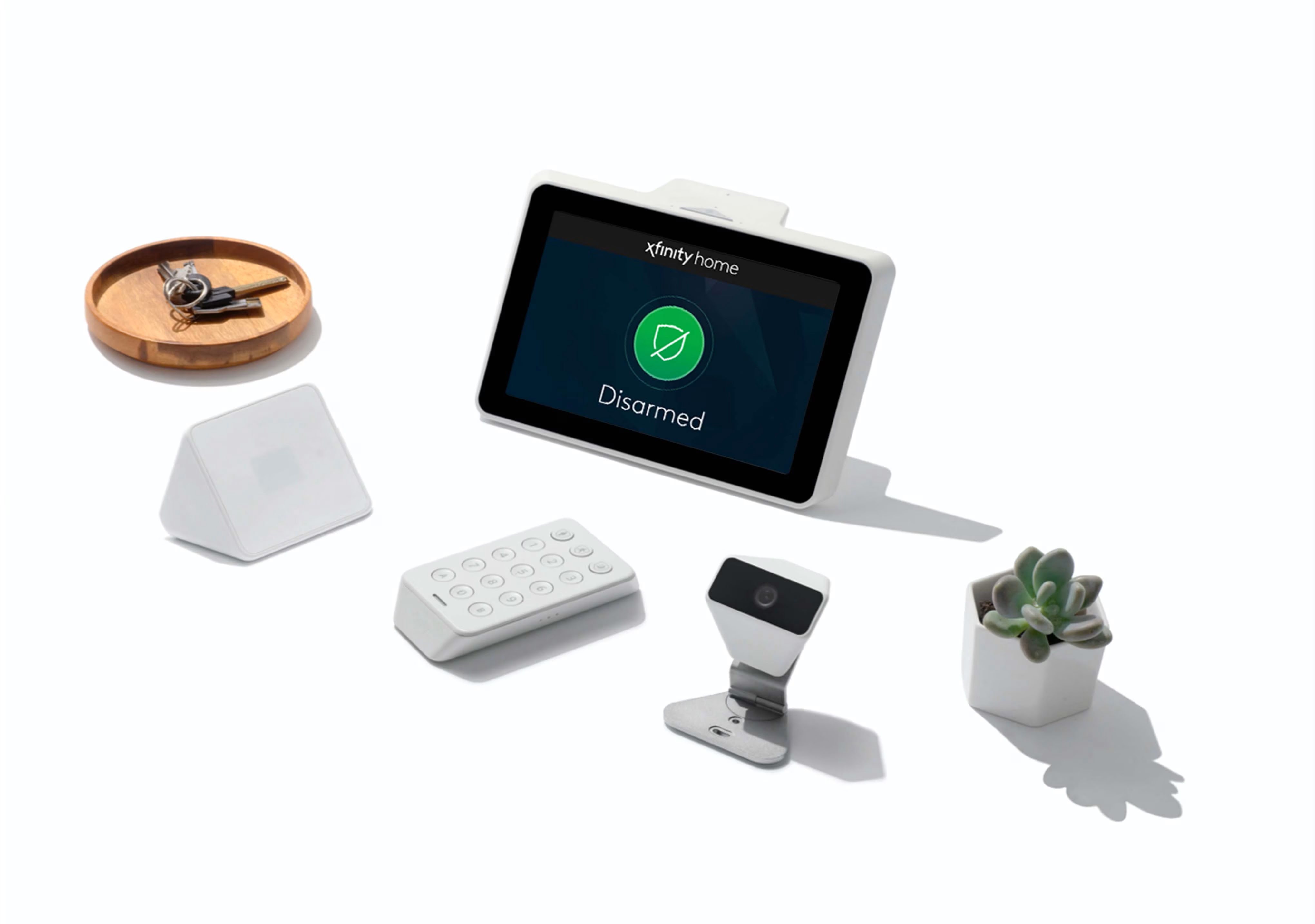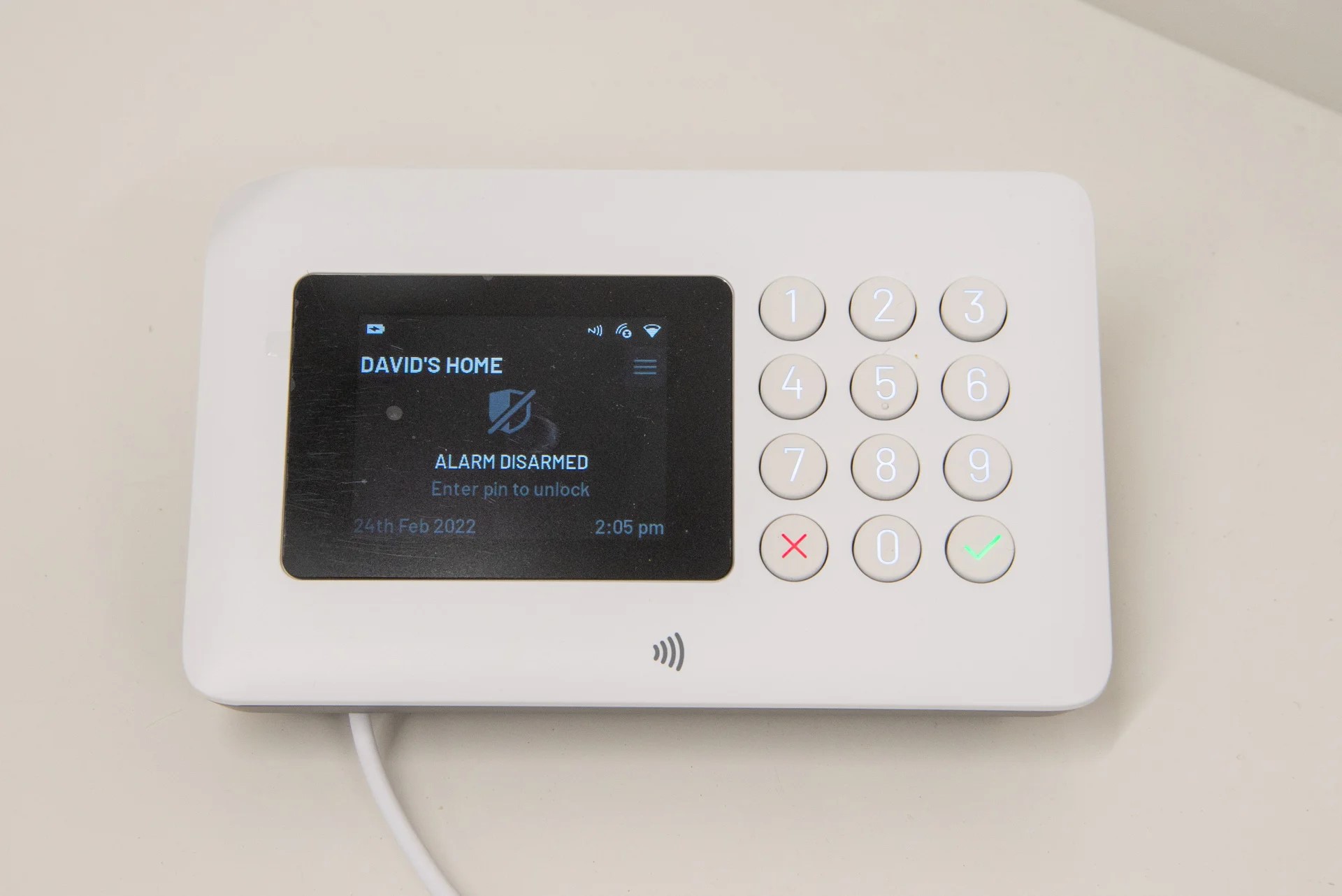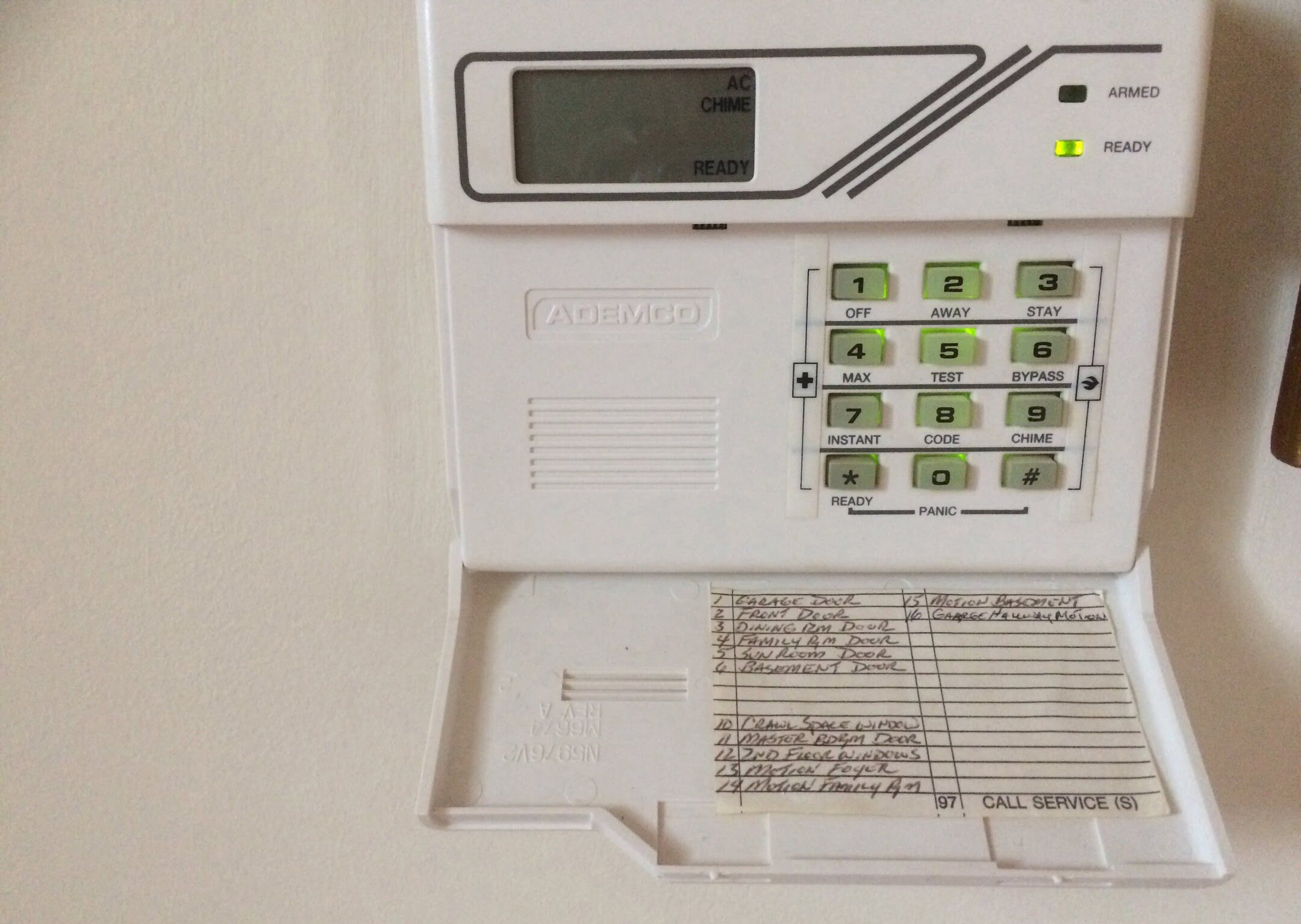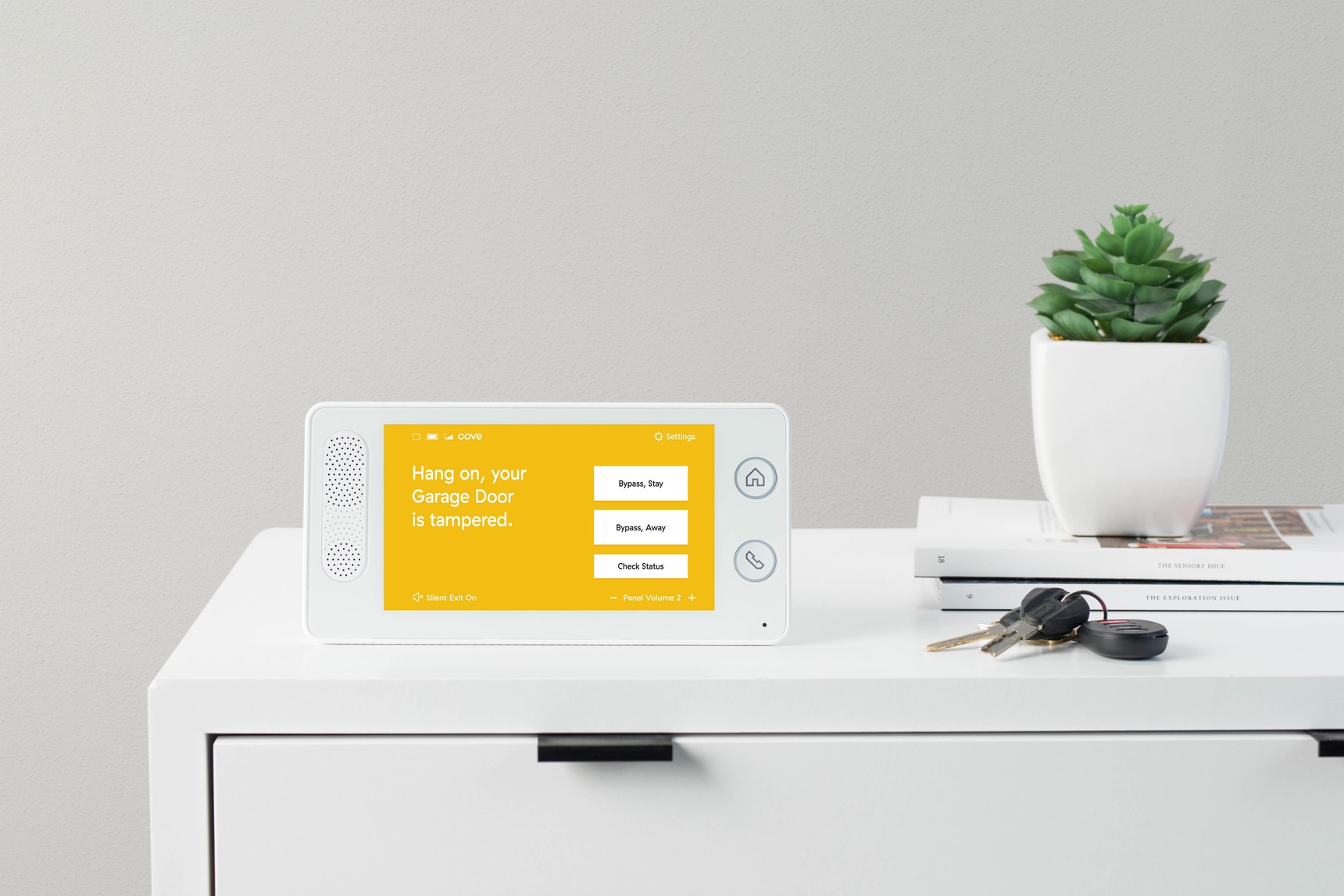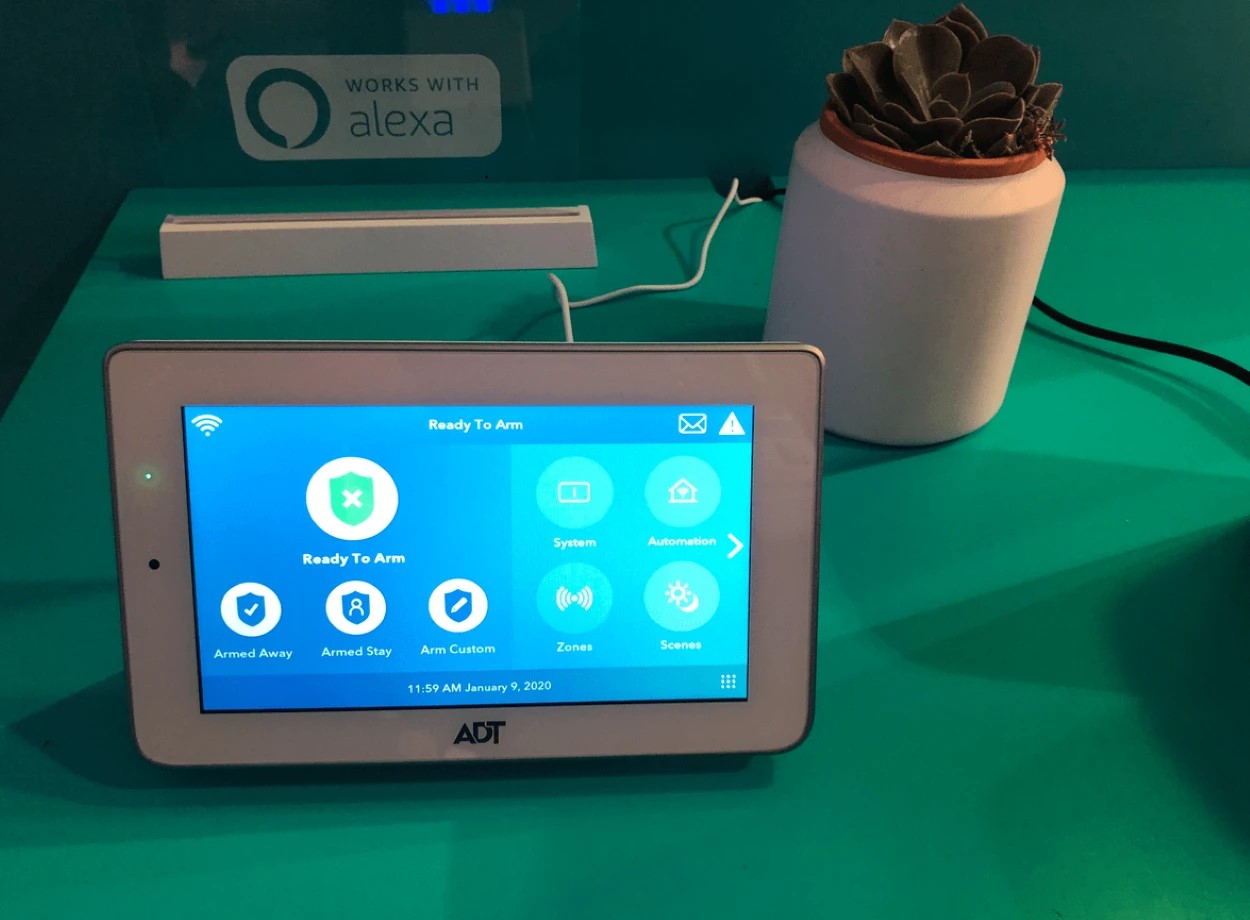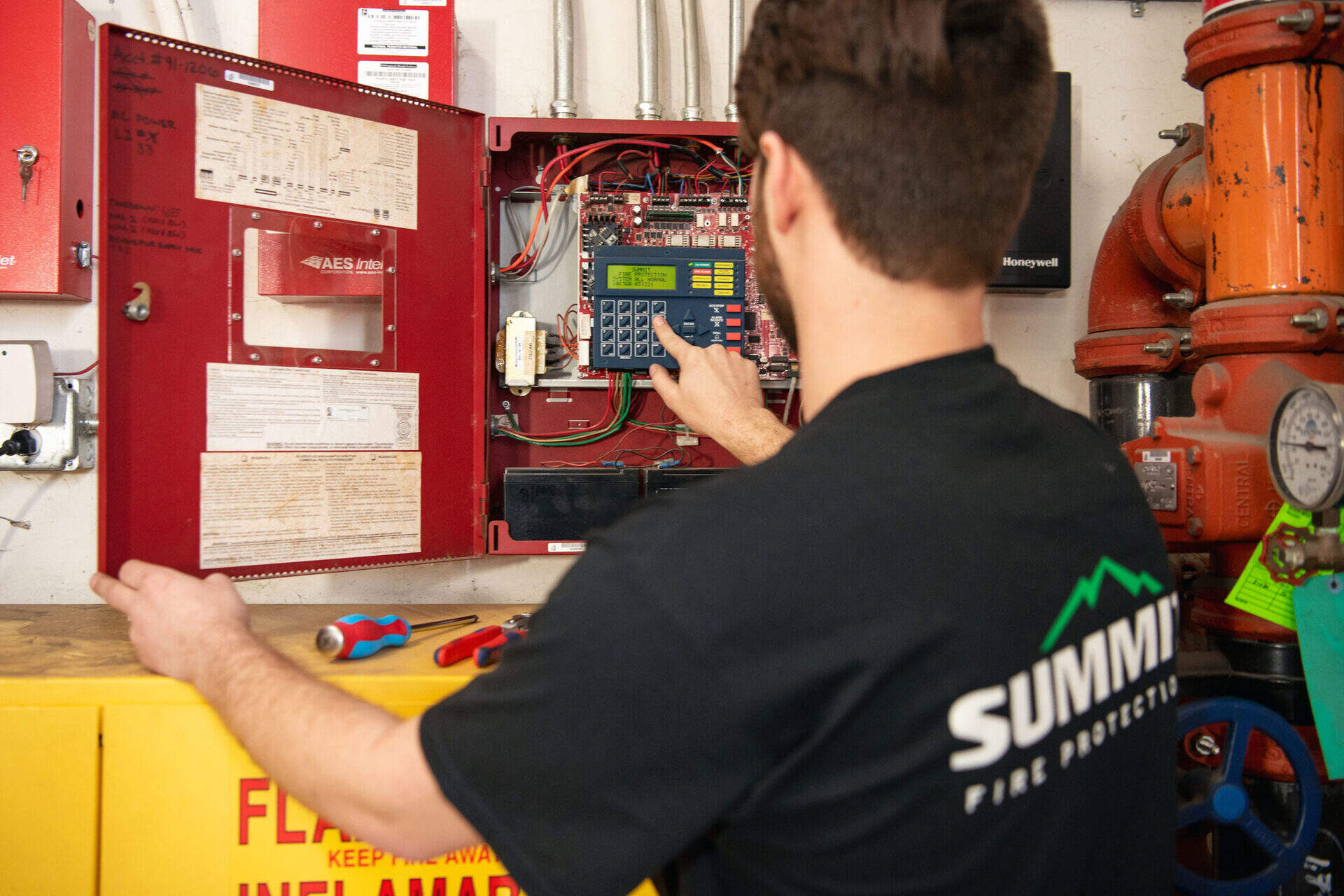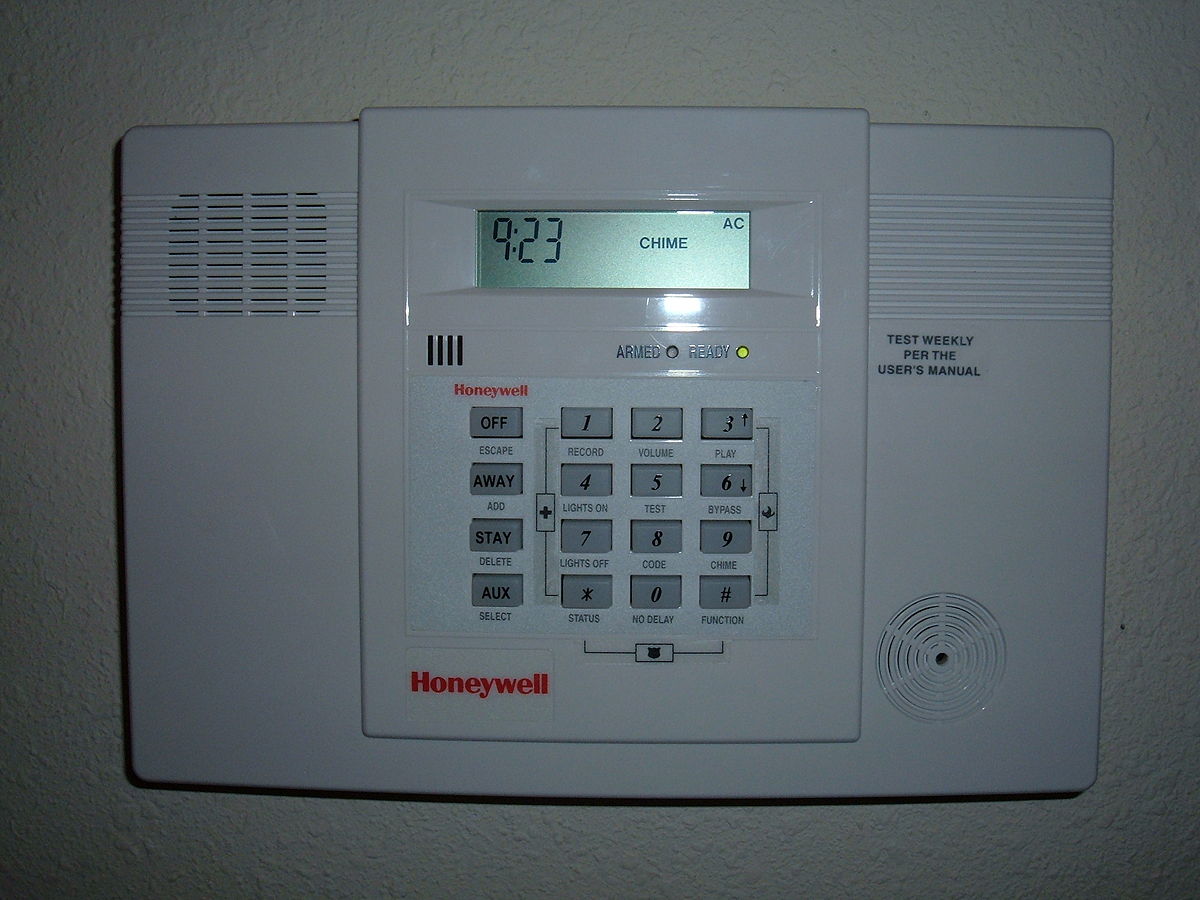Home>Home Security and Surveillance>What Are Alarm Systems
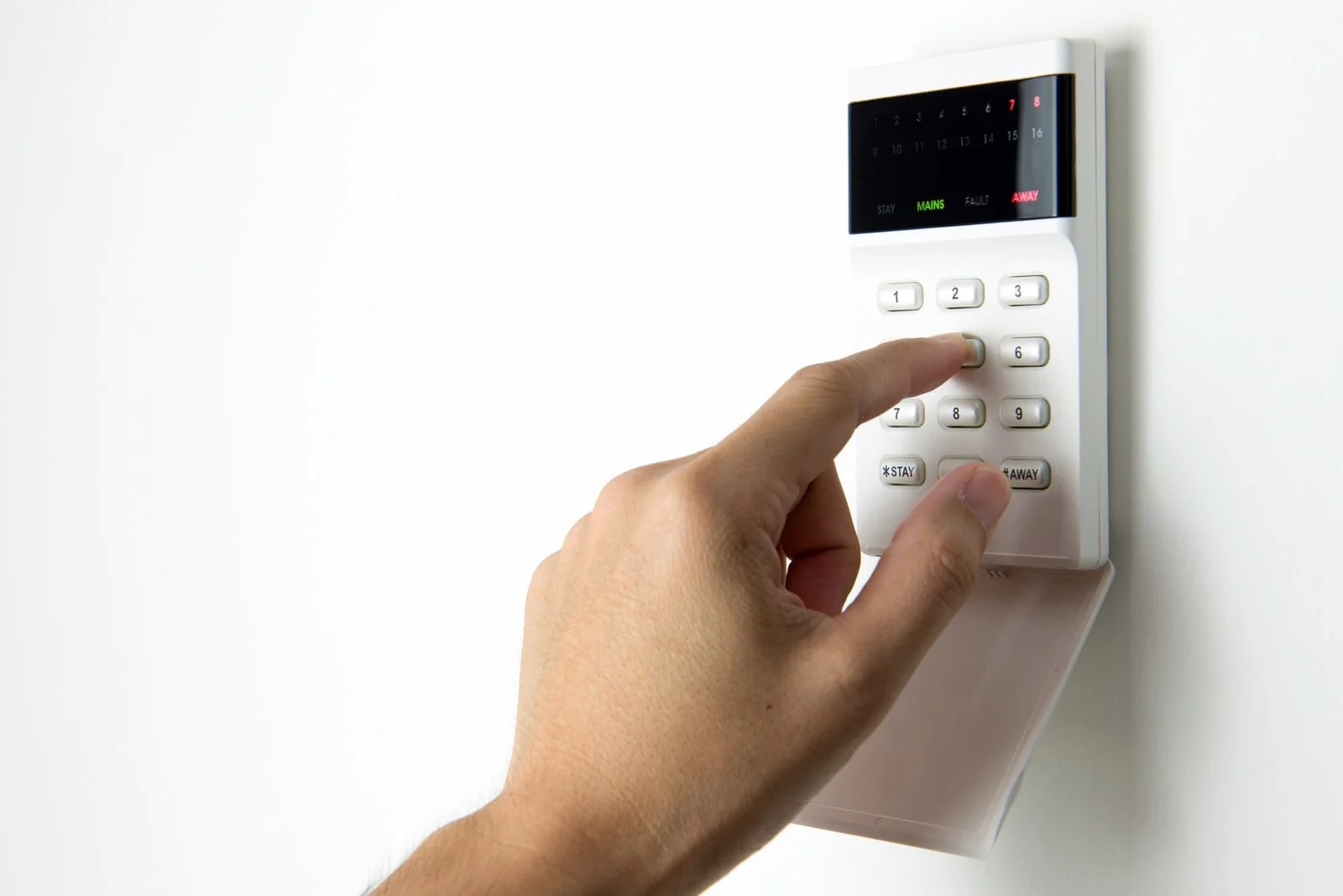

Home Security and Surveillance
What Are Alarm Systems
Modified: October 20, 2024
Discover the importance of home security and surveillance with alarm systems. Enhance the safety of your property and loved ones with advanced technology and reliable monitoring.
(Many of the links in this article redirect to a specific reviewed product. Your purchase of these products through affiliate links helps to generate commission for Storables.com, at no extra cost. Learn more)
Introduction
Welcome to the world of home security and surveillance! In an increasingly uncertain and unpredictable world, protecting our homes and loved ones has become a top priority. This is where alarm systems come into play. Alarm systems are a vital line of defense in safeguarding your home from potential threats, providing you with peace of mind and a sense of security.
With the advancement of technology, alarm systems have evolved to offer a wide range of features and functionality, catering to the specific needs and preferences of homeowners. From basic intruder alerts to sophisticated smart home integration, the options are virtually endless.
In this article, we will delve into the workings of alarm systems, explore the different types available, guide you through their components, highlight the features and benefits they offer, and provide valuable insights to help you choose the right alarm system for your home. Additionally, we will discuss the installation process, maintenance requirements, and address common concerns and frequently asked questions.
So, whether you are a homeowner looking to enhance your home security, or simply someone interested in learning more about alarm systems, this comprehensive guide will equip you with everything you need to know.
Now, let’s dive into the fascinating world of alarm systems and discover how they can help protect what matters most to you.
Key Takeaways:
- Alarm systems use sensors and control panels to detect and alert you to potential threats in your home, providing enhanced security and peace of mind.
- Choosing the right alarm system involves considering security needs, detection range, budget, and maintenance, ensuring optimal protection for your home and loved ones.
Read more: What Is Zoning Pertaining To Alarm Systems
How Alarm Systems Work
Alarm systems function by utilizing a combination of sensors, control panels, and communication devices to detect and alert you to potential security threats in your home. Understanding the basic workings of alarm systems will provide you with insights into their effectiveness and how they can keep your home secure.
The foundation of an alarm system lies in its sensors, which are strategically placed throughout your home to monitor activity and detect any unusual or unauthorized movements. These sensors can include door and window sensors, motion detectors, glass break detectors, and even smoke and carbon monoxide detectors.
When a sensor detects an abnormal activity, it sends a signal to the control panel, which serves as the brain of the system. The control panel then analyzes the received signals and determines the appropriate action to be taken, based on the programmed settings.
If the control panel determines that there is a potential threat, it triggers an alarm, which can take the form of a loud siren, flashing lights, or even a notification sent to your mobile device. The purpose of these alarms is to alert you and anyone in the immediate vicinity that there is a security breach or potential danger.
In addition to the audible alarms, alarm systems often have built-in communication devices that can notify a monitoring center or emergency services. This feature is especially useful in situations where you may not be able to respond or are away from home. The monitoring center can then take appropriate action, including contacting the authorities or dispatching security personnel to your location.
It’s important to note that alarm systems can be either wired or wireless. Wired systems rely on physical connections between the components, while wireless systems use wireless technology, such as Wi-Fi or cellular networks, to transmit signals between the sensors and the control panel. Both types have their advantages and considerations, depending on your specific needs and preferences.
Overall, the effectiveness of an alarm system lies in its ability to quickly and accurately detect potential threats and alert you to take appropriate action. By having an alarm system in place, you can greatly increase the security of your home and deter intruders from targeting your property.
Types of Alarm Systems
Alarm systems come in various types, each offering unique features and catering to different security needs. Understanding the different types of alarm systems will help you make an informed decision when choosing the one that best suits your requirements. Let’s explore some of the most common types:
- Burglar Alarm Systems: Burglar alarm systems are designed to detect unauthorized entry into your home. They typically consist of door and window sensors, motion detectors, and a control panel. When a sensor detects a breach, the alarm is triggered, alerting you and potentially scaring off intruders.
- Fire Alarm Systems: Fire alarm systems are crucial for detecting and alerting you to the presence of smoke or fire in your home. They often incorporate smoke detectors, heat detectors, and carbon monoxide detectors. In the event of a fire, the alarm system will sound an audible alert and simultaneously notify the monitoring center or emergency services.
- Medical Alert Systems: Medical alert systems are specifically designed to provide assistance in medical emergencies, especially for elderly individuals or those with special medical needs. These systems include wearable devices equipped with emergency buttons that, when pressed, initiate a call for help to a monitoring center or pre-set contacts.
- Smart Home Security Systems: Smart home security systems integrate advanced technology and connectivity to provide comprehensive home security and automation. These systems allow you to control and monitor your alarm system remotely through your smartphone or other connected devices. They often include features like video surveillance, remote monitoring, smart locks, and the ability to automate lighting and other home functions.
- Wireless Alarm Systems: Wireless alarm systems utilize wireless technology, such as Wi-Fi or cellular networks, to transmit signals between the sensors, control panel, and monitoring center. These systems are easy to install, as they do not require extensive wiring. They offer flexibility and are ideal for renters or those who may move residences frequently.
- Outdoor Perimeter Alarm Systems: Outdoor perimeter alarm systems are designed to protect the boundaries of your property. They include sensors or detectors that monitor the exterior areas, such as fences, gates, and driveways. These systems serve as an early warning system, alerting you to any unauthorized activity near your property.
When selecting an alarm system, consider your specific needs, budget, and the level of security you desire. It may also be beneficial to consult with a professional security provider who can assess your home and recommend the most suitable type of alarm system for your circumstances.
Components of an Alarm System
An alarm system consists of various components that work together to ensure the security of your home. Understanding these components will help you make an informed decision when selecting an alarm system and allow you to customize it according to your specific security needs. Let’s explore the key components of an alarm system:
- Control Panel: The control panel serves as the central hub of the alarm system. It receives signals from the sensors and determines the appropriate response based on the programmed settings. The control panel is typically installed in a discreet location, such as a closet or basement.
- Sensors: Sensors are crucial components that detect and monitor various activities in and around your home. These include door and window sensors, motion detectors, glass break detectors, and smoke detectors. Each sensor is strategically placed to detect specific types of threats or breaches.
- Keypad: The keypad allows you to arm and disarm the alarm system. It typically requires a personal identification number (PIN) for access. Some keypads also have additional features, including panic buttons for immediate alert in case of emergencies.
- Siren: The siren is an audible alarm that sounds when a breach or threat is detected. Its purpose is to alert you and potentially scare off intruders. The volume and duration of the siren can be adjusted based on personal preference and local regulations.
- Control Panel Communication Device: This component enables communication between the control panel and the monitoring center. It can be connected via landline, cellular network, or internet connection, depending on the type of alarm system.
- Backup Power Supply: To ensure uninterrupted functionality, alarm systems are equipped with a backup power supply, such as a battery or generator. This backup power kicks in during power outages, ensuring that the alarm system remains operational.
- Monitoring Center: Some alarm systems offer the option for professional monitoring services. A monitoring center receives alerts from your alarm system and takes appropriate action, such as contacting the authorities or dispatching security personnel to your location. This provides an additional layer of protection, especially when you are unable to respond to alerts.
- Remote Access: Many modern alarm systems offer remote access capabilities, allowing you to control and monitor your system from anywhere using your smartphone or other internet-connected devices. This feature provides convenience and peace of mind, as you can arm or disarm your system, receive real-time notifications, and view surveillance footage remotely.
These components work together seamlessly to create a comprehensive security system for your home. When selecting an alarm system, consider the quality and reliability of the components, as well as their compatibility with your specific security needs and preferences.
Features and Benefits of Alarm Systems
Alarm systems provide numerous features and benefits that contribute to the overall security and peace of mind for homeowners. Understanding these features will help you make an informed decision when choosing an alarm system for your home. Let’s explore some of the key features and benefits:
- Enhanced Home Security: The primary benefit of an alarm system is enhanced home security. By having sensors placed strategically throughout your home, alarm systems can detect and alert you to potential threats, such as break-ins, fires, and other emergencies, giving you valuable time to respond or seek help.
- Deterrence of Intruders: The presence of visible alarm system components, such as window stickers and yard signs, acts as a strong deterrent to potential intruders. Studies have shown that homes with alarm systems are much less likely to be targeted by burglars.
- Early Detection and Alert: Alarm systems provide early detection of security threats. Sensors can quickly detect unauthorized entry, motion, or unusual activity, triggering an immediate alert to you and potentially scaring off intruders before they can cause significant harm.
- Remote Monitoring: Many alarm systems offer remote monitoring capabilities, allowing you to monitor your home in real-time from anywhere using your smartphone or other connected devices. This enables you to keep an eye on your property, receive instant alerts, and take necessary action even when you’re away.
- Integration with Smart Home Devices: Modern alarm systems often integrate seamlessly with other smart home devices, offering a comprehensive home automation experience. You can control your alarm system, adjust your thermostat, turn on/off lights, and even lock/unlock doors, all from a single app or voice command.
- Fire and Life Safety: Alarm systems equipped with smoke detectors and carbon monoxide detectors provide an added layer of fire and life safety. These devices can detect the presence of smoke and dangerous gases, initiating immediate alerts to you and potentially saving lives.
- Elevated Peace of Mind: The sense of security and peace of mind that comes with having an alarm system is invaluable. Knowing that your home is protected and that you are alerted to any potential threats allows you to relax and enjoy your time at home or away.
- Insurance Benefits: Installing an alarm system may make you eligible for discounts on your homeowner’s insurance. Insurance companies recognize the added security and reduced risk of theft or damage associated with alarm systems, resulting in potential cost savings.
When considering an alarm system, evaluate the features provided by different systems and ensure they align with your security needs and lifestyle. Remember, the ultimate goal is to create a secure and safe environment for you and your loved ones.
Read more: What Alarm Systems Use Alexa
Choosing the Right Alarm System for Your Needs
Choosing the right alarm system for your needs is a crucial step in ensuring the security of your home. With a wide range of options available, it’s important to consider various factors to make an informed decision. Here are some key considerations when selecting an alarm system:
- Security Requirements: Assess your security needs and priorities. Determine the level of protection you require, whether it’s basic intruder detection, fire and life safety, or advanced smart home integration. This will help you narrow down the options and focus on systems that meet your specific requirements.
- Detection Range and Coverage: Consider the size and layout of your property. Ensure that the alarm system you choose has adequate detection range and coverage to monitor all entry points, windows, and vulnerable areas. This will ensure comprehensive protection and minimize blind spots.
- System Scalability: Consider your future needs and the potential for system expansion. Whether you plan to add more sensors, integrate other devices, or increase remote access capabilities, it’s important to choose a system that offers scalability and allows for easy upgrades in the future.
- Wired or Wireless: Decide whether you prefer a wired or wireless alarm system. Wired systems are typically more reliable but require professional installation, while wireless systems offer flexibility and easy installation but may be susceptible to signal interference.
- Budget: Determine your budget for an alarm system, including upfront costs, ongoing monitoring fees (if applicable), and any additional features or accessories you may need. It’s important to strike a balance between affordability and the level of security and features you desire.
- Professional Monitoring: Consider whether you want professional monitoring services. Professional monitoring provides an additional layer of security, as trained personnel can quickly respond and take appropriate action when an alarm is triggered.
- User-Friendly Interface: Evaluate the user interface and ease of use of the alarm system. Look for systems with intuitive and user-friendly interfaces, as well as mobile apps or web portals that make it easy to arm and disarm the system, receive alerts, and manage settings.
- Customer Support and Warranty: Research the reputation and reliability of the alarm system provider. Look for providers with good customer support, technical assistance, and warranty coverage. A reliable and responsive support team can help address any issues or concerns you may have.
It’s also beneficial to consult with an experienced security professional who can assess your home and provide personalized recommendations based on your specific needs and circumstances. They can guide you through the decision-making process and help you select the right alarm system that offers the best balance of security, features, and affordability.
Remember, the key is to choose an alarm system that aligns with your unique security requirements and provides you with the peace of mind you deserve.
Installation and Maintenance of Alarm Systems
Proper installation and regular maintenance are essential for ensuring the effectiveness and reliability of your alarm system. Here are some key considerations regarding the installation and maintenance of alarm systems:
Installation:
- Professional Installation: For wired alarm systems or complex installations, it is recommended to have a professional install the system. They have the expertise and knowledge to ensure proper placement of sensors, wiring, and connection to the control panel. Professional installation can help optimize the system’s performance and minimize the risk of errors.
- DIY Installation: Some alarm systems are designed for easy DIY installation, especially wireless systems. These typically come with step-by-step instructions and can be set up without professional help. However, it’s important to carefully follow the instructions and test the system thoroughly after installation to ensure it is fully functional.
- Placement of Sensors: Proper placement of sensors is crucial for accurate detection. Follow the manufacturer’s instructions on where to install door and window sensors and motion detectors. Ensure they are positioned to cover the desired areas effectively, minimizing blind spots and false alarms.
- Testing and Activation: Once the system is installed, thoroughly test each sensor and functionality of the system. Arm and disarm the system to ensure it works smoothly. Activate any monitoring services and confirm that communication with the monitoring center is successful.
Maintenance:
- Regular Testing: Test your alarm system regularly to ensure all sensors, alarms, and communication devices are functioning properly. Follow the manufacturer’s guidelines on how frequently to perform tests, typically once a month. This helps identify any issues or malfunctions that need attention.
- Change Batteries: If your alarm system uses batteries, regularly check and replace them as needed. Weak batteries can compromise the system’s performance and reliability. Set a reminder to change batteries annually or based on the manufacturer’s recommendations.
- Keep Sensors Clean: Dust, debris, or cobwebs can interfere with sensor performance. Regularly clean the sensors using a soft cloth to ensure they can detect movement or breaches accurately. Avoid using harsh chemicals or abrasive materials that may damage the sensors.
- Update System Firmware: If your alarm system has firmware or software updates available, make sure to install them. These updates can improve functionality, address any known security vulnerabilities, and ensure optimal performance.
- Monitor Signal Strength: For wireless alarm systems, regularly monitor the signal strength between the sensors and the control panel. Weak signals may result in communication issues or false alarms. If necessary, reposition or add signal boosters to improve connectivity.
Additionally, it’s important to familiarize yourself with the user manual provided by the alarm system manufacturer. This will provide detailed instructions on how to operate and maintain your specific system.
By following proper installation procedures and implementing regular maintenance routines, you can ensure that your alarm system remains effective, reliable, and provides optimal security for your home.
Common Concerns and FAQs about Alarm Systems
When it comes to alarm systems, it’s natural to have questions and concerns. Here, we address some of the most common concerns and frequently asked questions regarding alarm systems:
1. Will my alarm system be affected by power outages?
Most alarm systems have backup power supplies, such as batteries or generators, to ensure they remain operational during power outages. This allows the system to continue functioning and providing protection even when the main power source is disrupted.
2. Can I install an alarm system in a rented property?
Yes, you can install an alarm system in a rented property. Wireless alarm systems are particularly suitable for renters, as they do not require extensive drilling or wiring. These systems can be easily installed, removed, and taken to a new location when you move.
3. How much does an alarm system cost?
The cost of an alarm system can vary significantly depending on various factors, such as the type of system, the number of sensors, and additional features. Basic systems can start at a few hundred dollars, while more advanced systems or those with professional monitoring may require monthly subscription fees. It’s important to consider the initial costs as well as any ongoing fees when budgeting for an alarm system.
Read more: What Kind Of Tape Is Used For Alarm Systems
4. Are alarm systems susceptible to false alarms?
While alarm systems are designed to minimize false alarms, they can occasionally occur. False alarms can be triggered by human error, pets, environmental factors, or system malfunctions. However, by properly installing and maintaining your system, ensuring sensors are correctly positioned, and conducting regular tests, you can minimize false alarms.
5. What happens if I accidentally trigger my alarm system?
If you accidentally trigger your alarm system, it’s important to act quickly. First, disarm the system using your keypad or mobile app. If your system is monitored by a professional monitoring center, quickly contact them to inform them of the accidental activation. This will prevent unnecessary dispatch of emergency services.
6. Can I monitor my alarm system remotely?
Many alarm systems offer remote monitoring capabilities through mobile apps or web portals. This allows you to arm and disarm your system, receive real-time notifications, and access video surveillance from anywhere using your smartphone or other connected devices. Remote monitoring provides convenience and enables you to stay connected with your home’s security wherever you are.
7. What should I do if my alarm system detects an actual threat?
If your alarm system detects a potential threat, such as an intruder or a fire, it’s important to prioritize your safety. Follow any emergency protocols you have in place, evacuate your home if necessary, and contact emergency services. Avoid confronting any intruders or tampering with potential hazards yourself.
If you have additional concerns or questions about alarm systems, it’s recommended to consult with a professional security provider. They can address your specific concerns and provide tailored advice to ensure your alarm system meets your needs and provides optimal security for your home.
Read more: What Are The Best DIY Home Alarm Systems
Conclusion
Investing in a reliable and effective alarm system is a critical step in safeguarding your home and protecting your loved ones. The world of home security and surveillance is constantly evolving, offering a wide range of alarm systems with advanced features and functionalities. Whether you’re looking for basic intruder detection, fire and life safety, or comprehensive smart home integration, there is an alarm system available to suit your needs.
In this comprehensive guide, we have explored the different types of alarm systems, their components, and the features and benefits they offer. By understanding how alarm systems work and considering factors such as security requirements, detection range, budget, and scalability, you can make a well-informed decision when choosing the right alarm system for your home.
Remember, the installation and maintenance of your alarm system are crucial for its effectiveness and reliability. Whether you opt for professional installation or a DIY approach, ensure sensors are placed strategically, and the system is thoroughly tested to verify its functionality. Regular maintenance, including testing, battery replacement, and sensor cleaning, is necessary to keep the system in optimal working condition.
Lastly, we addressed common concerns and frequently asked questions about alarm systems, providing insights and guidance to alleviate any doubts or uncertainties you may have.
By taking the necessary steps to install a quality alarm system and keeping it well-maintained, you can enhance the security of your home, deter potential intruders, and gain the peace of mind you deserve. Having an alarm system in place not only protects your property and belongings but also ensures the safety and well-being of your loved ones.
So, take action today and explore the world of alarm systems, find the perfect fit for your home, and enjoy the added security and peace of mind it brings.
Frequently Asked Questions about What Are Alarm Systems
Was this page helpful?
At Storables.com, we guarantee accurate and reliable information. Our content, validated by Expert Board Contributors, is crafted following stringent Editorial Policies. We're committed to providing you with well-researched, expert-backed insights for all your informational needs.
